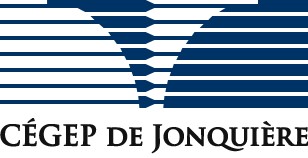Since its foundation, the Industrial Research Chair for Colleges in Sustainable Energy Technology and Energy Efficiency (TERRE) at the Cégep de Jonquière has carried out applied research in sustainable supply to help isolated areas free themselves of their dependency on fossil fuels.
A wide-reaching hydro-electric power grid has been developed to meet Québec’s energy needs. However, areas far from urban centres go unserved. In these isolated locations, electricity is generated by fossil fuels, which are expensive and cause high levels of greenhouse gas emissions (GHG). Martin Bourbonnais, TERRE Chairholder, and Québec Outfitters (QO) are currently implementing a three-pronged program to help QO members use sustainable supply planning to go green.
Begun in 2013, the first phase of this program was to create a tool for evaluating the sustainable development of outfitting lodges. With this tool, TERRE helped the owners and employees of five outfitters paint an overall portrait of the ecology, community, economy, and governance of their lodges. Outfitters then received a customized summary of their sustainable development.
The second phase of this program continued on in 2014 with a technical audit of the energy efficiency and renewable supply of outfitter lodges. The data from this original and scientific process and the resulting recommendations will inform outfitters’ choices in implementing renewable energies for greater energy efficiency. Partners, such as Cegertec WorleyParsons, the Wind Energy TechnoCentre and VOLTS Energies, served as consultants on the project.
The third phase provides assistance to Canadian manufacturers who wish to optimize their energy efficient products and receive third-party certification. The Chair is very active with these potential manufacturers in several sectors, since their products would meet the wide range of needs felt in isolated locations.
Nordest Marine has become a partner of the Chair to develop its hydrokinetic river turbines. An electric engineering student at the college has earned many distinctions and grants for having greatly contributed to this innovative project.
In wind power, Eocycle’s wind turbine and the weather masts in the college’s technology showcase have been used for performance assessments. Follow-up in real time with Eocycle allows them to confirm the impact of the ongoing improvements they are testing on the college campus.
As for solar power, the Chair and its partners—namely, Bouthillette Parizeau & associés (BPA), Simulead, and the Commission scolaire de la Jonquière via its DEP-level carpentry and woodworking students—have designed and manufactured a test bench to compare the performance of solar thermal panels. They are currently in an implementation phase. A standard commercial panel and an experimental panel from the Groupe de recherches écologiques de la Baie (GREB) are set up in the same conditions side byside on the roof of the building. The experimental panel is less expensive and can be self-built.
In the coming year, tests will lead to a comparative study of the different products’ key technical and financial considerations. Manufactured by another partner, another thermic solar panel prototype is being optimized and tested, after a 5 kW solar park was installed in partnership with Rio Tinto Alcan on the roof of the college’s technical pavilion.
A test bench for using photovoltaic solar to preheat household water was installed. Trials will start in 2015 and deliverables are slated for 2016.
The TERRE Chair is proud to orchestrate its 23 partner organizations in achieving common objectives. Other partnerships are foreseeable with Canadian companies, whose products and services help isolated populations become more sustainable. At the TERRE Chair, applied research is indeed at Canadians’ service!


